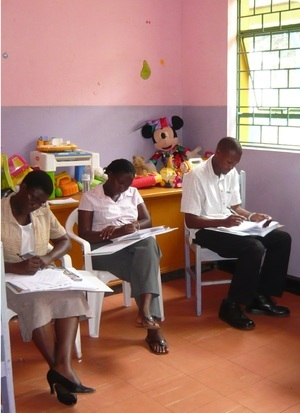Qualitative research guidance now available for wider science community
10 January 2014

Social scientists from the ACT Consortium released a compendium of guidance notes and templates to help international health researchers design, set up, run, analyse and monitor qualitative research in their studies.
'Qualitative Methods for International Health Intervention Research' was brought together by the Consortium’s core social scientists – mainly anthropologists – for use in qualitative research of ACT Consortium projects, and will benefit scientists who want to include this type of research in their projects.
Filling a gap in global health research
Qualitative methods help researchers, programme managers and policy makers to understand better the nature of health care issues and the consequences of health interventions. Qualitative research is therefore in increasing demand in the field of global health, especially in clinical trials.
The ACT Consortium investigates malaria diagnosis and treatment in ten countries in Africa and Asia. Many of its 25 projects have a qualitative research component, for example to inform the way the interventions are designed and to evaluate their impact.
“Our projects are multi-disciplinary. This meant that our social science work needed to be easily understood and easy to relate to our colleagues’ work, for example in public health and economics,” explained Dr Clare Chandler, lead author of the guidance documents and lead social scientist of the ACT Consortium. “ Our projects are also in multiple countries. This meant that for our social science research activities to be good quality, we had to develop methods for standardizing and monitoring approaches to fieldwork and analysis whilst allowing for flexibility in the details”.
Promoting quality from field work to write-up of results
Following an introduction to qualitative research, users will be guided through different qualitative fieldwork methods, including in-depth interviews, focus group discussions and direct observations. They will find advice on how to set up a research project – from choosing a good team to drafting a protocol – before learning how to run a good quality project.
The last chapter of the guidance focuses on the interpretation of qualitative data. It outlines different coding and analytic processes, as well as guidance on how to write up qualitative data and synthesize findings in the context of a research consortium.
“I hope this will now be a really useful set of resources for other groups engaging in large-scale qualitative research in health interventions, and we can save them some time by providing some ideas for 'how to' in future research,” said Dr Chandler, who is also a Lecturer in Social Science at the London School of Hygiene & Tropical Medicine.
The guidance is accompanied by a protocol template and a set of training tools in powerpoint presentations and as handouts.
Further information

